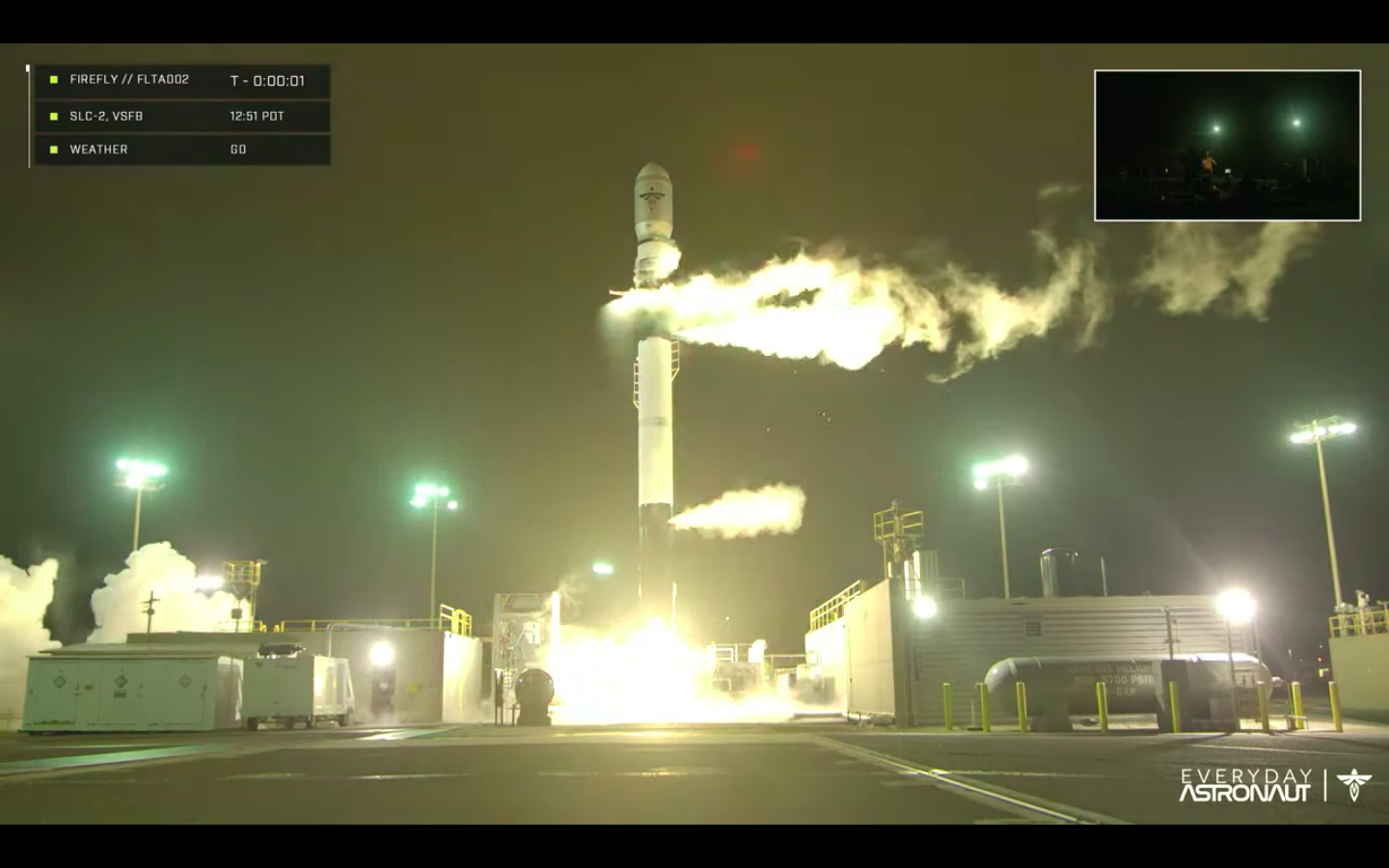
Firefly Aerospace's second orbital launch attempt will have to wait for another day.
The company planned to send its Alpha rocket to orbit on a test flight early Friday morning (Sept. 30) from California's Vandenberg Space Force Base, and it ticked off a lot of boxes along the way — including engine ignition.
Alpha's first-stage Reaver engines lit up at 3:51 a.m. EDT (0751 GMT; 12:51 a.m. local California time), but they shut down almost immediately, and the 95-foot-tall (29 meters) rocket remained standing on the pad, apparently in good condition. It wasn't immediately clear what caused the launch abort.
"The vehicle went into auto abort after ignition. This is designed into the system to ensure safety. The team scrubbed tonight's launch attempt and is reviewing data to determine our next launch window," Firefly tweeted this morning.
Video: Watch Firefly Aerospace use a rocket engine to light birthday candles
Firefly calls the mission it aimed to launch today "Alpha Flight 2: To The Black." As that name suggests, it will be the second orbital attempt for Alpha; the first try, in September 2021, ended in failure after one of the Reavers shut down prematurely not long after liftoff.
Though "To The Black" is a test flight, Alpha isn't carrying a dummy payload; it will attempt to deploy a handful of small satellites into low Earth orbit on the mission. You can read more about them in our launch preview story from earlier this month.
Get the Space.com Newsletter
Breaking space news, the latest updates on rocket launches, skywatching events and more!
Firefly originally tried to launch "To The Black" on Sept. 11 but scrubbed that attempt after noticing an unexpected drop in helium pressure in the leadup to liftoff. Unfavorable weather forecasts then pushed the try to today.
Firefly aims to secure a sizeable portion of the small-satellite launch market with Alpha. The rocket can haul 2,580 pounds (1,170 kilograms) of payload to low Earth orbit on each launch, according to Firefly's Alpha user's guide. The company charges $15 million per mission.
Mike Wall is the author of "Out There" (Grand Central Publishing, 2018; illustrated by Karl Tate), a book about the search for alien life. Follow him on Twitter @michaeldwall. Follow us on Twitter @Spacedotcom or on Facebook.
Join our Space Forums to keep talking space on the latest missions, night sky and more! And if you have a news tip, correction or comment, let us know at: community@space.com.

Michael Wall is a Senior Space Writer with Space.com and joined the team in 2010. He primarily covers exoplanets, spaceflight and military space, but has been known to dabble in the space art beat. His book about the search for alien life, "Out There," was published on Nov. 13, 2018. Before becoming a science writer, Michael worked as a herpetologist and wildlife biologist. He has a Ph.D. in evolutionary biology from the University of Sydney, Australia, a bachelor's degree from the University of Arizona, and a graduate certificate in science writing from the University of California, Santa Cruz. To find out what his latest project is, you can follow Michael on Twitter.









